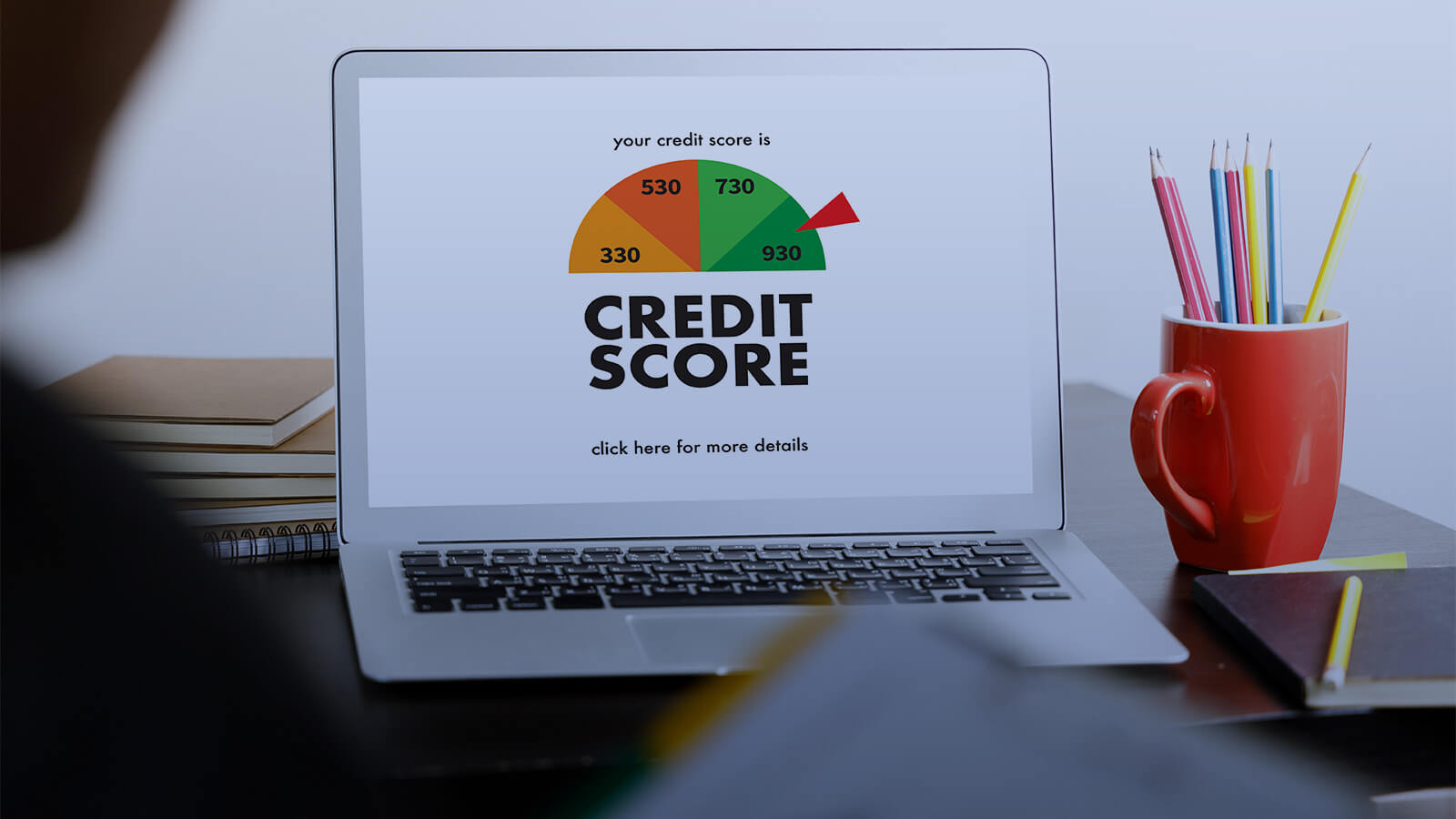The Relationship Between Gambling & Credit Score: What You Need to Know
KingCasinoBonus receives money from casino operators every time someone clicks on our links, influencing product placement. The compensation we receive does not impact our recommendation, advice, reviews and analysis in any way. Our content will always remain objective, independent, straightforward, and free from bias.

Are you worried your online gambling habits will affect your credit score? While online betting isn’t directly linked to your ability to take out a loan, there are still many ways your habits impact your credit score. Discover all the influences online casinos can have on your credit and the most important responsible playing tips while playing online gambling games.
On this page
- How Are Credit Scores and Gambling Connected?
- How Can Gambling Impact Your Credit Scores?
- Keep a Close Eye to Your Credit Score
- How Can You Find Help with a Gambling Problem
- What Credit Consequences Can Gambling Bring?
- What Are 5 Steps Towards Solving a Gambling Issue
- Are Gambling and Credit Scores Related?
How Are Credit Scores and Gambling Connected?
As verified by Experian, your gambling activity does not appear on your credit score.
Therefore, playing at the top online casinos or placing weekly bets won’t directly influence your credit score or ability to borrow money.
Gambling does not directly influence your credit file
Rather, your credit score is affected by your payment history, credit utilisation, amount of money you owe, length of your credit history, credit mix, and any hard inquiries you have carried out on your file.
Owing to the inherent risks associated with gambling, some financial behaviours related to your wagers can influence your credit score.
Now it is time to analyse the potential drawbacks
This is particularly true if you look for cash advances or apply for short-term credit (such as payday loans) to finance gambling, which can cause many problems going forward.
It’s essential to consider the impact of gambling on your financial situation, as you don’t want it to impact your creditworthiness!
Here is where we jump to your help!
The following sections review the different ways gambling affects your credit score.
This will help you set limits and ensure that you remain in control of your online casino bonuses and sports betting activity.
How Can Gambling Impact Your Credit Scores?
Borrowing money to finance your gambling can harm your creditworthiness, be it credit card borrowing, payday loans, or missed payments in general.
How does that happen?
While gambling doesn’t directly impact your credit score, your gambling expenditure can affect your financial health and well-being.
More specifically, financial actions related to gambling can influence your credit-worthiness in the following ways:
Missing payments on your credit card
In the UK, for example, you’re no longer allowed to pay for gambling with your credit card due to changes to gambling legislation introduced by the UKGC in 2020. Remember that you must still meet your agreed monthly credit card repayments to protect your credit score.
If you use money intended for credit card repayments for gambling, you will struggle to meet your monthly payments, which will significantly impact your credit score.
Worryingly, missed payments can stay on your credit score for six years, highlighting why keeping up to date with your credit card provider is essential.
Increasing your credit utilisation ratio
Your credit utilisation ratio is the percentage of your current total available credit.
For instance, if you have a line of credit worth £1,000 and spend £300 monthly, your credit utilisation ratio will be 30%. The higher your credit utilisation ratio, the harder it is to borrow money.
What can you do to improve the percentages?
You should keep your credit utilisation ratio below 30% to maintain a good credit score.
If your ratio is above 75%, it will likely appear as a red flag on your credit file.
So, the key thing to remember here is not to borrow excessively, particularly to pay for gambling, or it will significantly impact your credit score.
Applying for payday loans
Although they’re widely available and advertised on various platforms, payday loans are dangerous and should be avoided.
Research shows that the average payday loan cost can be as high as 1,500% (APR), compared to the standard 22% (APR) cost of credit cards.
If you apply for a payday loan to pay for online casino gambling, you are under immense pressure to pay it back in the stipulated period.
Further information on payday loans
Major credit bureaus like Experian, Equifax, and TransUnion don’t like to see payday loans on credit files as they regard it as a sign of desperation.
Therefore, you should only consider payday loans as a last resort and not apply for them to pay for online gambling.
Loan defaults, bankruptcies, and CCJs
Depending on the severity of your gambling debt, you may be forced to default on a personal loan or another form of credit.
In the worst case scenario, this can lead to bankruptcy or CCJs – County Court Judgements that summon you to appear in court to repay the money you owe.
The downsides of such cases:
If you file for bankruptcy or have a CCJ outstanding on your credit file, it will make it difficult (if not impossible) to borrow money in the near future, as lenders will see you as a significant risk.
Multiple credit applications
If you make multiple credit applications in a short space of time, it can hurt your credit score.
This is because many lenders perform what is known as a “hard inquiry” on your credit file, meaning that your file is marked, and your score will temporarily dip following the check.
While one hard inquiry won’t damage your creditworthiness in the long term, multiple hard inquiries in a short space of time will hurt your credit score, as it’s another sign of desperation in the eyes of the credit bureaus.
Take your time to read all the fine print!
So, be mindful of how many credit applications you make and read the small print to determine whether the lender performs a soft or hard check on your file before applying.
Ultimately, if you are experiencing financial difficulties as a result of gambling, all of the above actions can have a negative impact on your credit score, making it much more challenging to borrow money.
But how do you check your credit file and identify any issues before they get out of hand?
Keep a Close Eye to Your Credit Score

Checking your credit score is easy, and you can request a copy of your file from major credit bureaus, including Experian, Equifax, and TransUnion.
Regularly reviewing and monitoring your credit score is essential. It allows you to identify and resolve any mistakes on your credit file and gives you a clear idea of how your current level of borrowing impacts it.
Helpfully, it’s really easy to check your credit score.
Follow these simple steps to get started:
- Step 1: You can search for the major credit bureaus in your country. For example, you’ll find Experian, Equifax, and TransUnion in the UK.
- Step 2: Request your file from Experian, Equifax or TransUnion. Be mindful that each bureau has a different method of scoring credit that you must be aware of before reviewing your file.
- Step 3: Read through your file and note any errors or issues you can find.
- Step 4: You can now search online for ways to improve your situation, like speaking to charities. Or chat with friends knowledgeable about personal finance and get their advice.
As well as identifying any issues or mistakes with your credit score, checking your file also lets you understand where you’re currently at with your borrowing.
If you’re close to maxing out your credit utilisation ratio, checking your file could be the action you need to take to reign in your spending and get your monthly repayments back on track.
Checking your credit score and requesting your file is free and easy and is a crucial step to take if you want to stay on top of your finances in general.
How Can You Find Help with a Gambling Problem
The first step towards seeking help for a gambling problem is acknowledging that you have an issue. You can then reach out for help and support from various organisations.
Acknowledging that you have a gambling problem isn’t easy. After all, everyone is different, and what is a problem for one person might not be for another. But the critical thing to consider is whether gambling has stopped being fun and if it has turned into an addiction.
If you have borrowed money to fund your gambling habit just to stay up to date with all the new casino promotions and you are worried that it has affected your credit score, it’s an indication that you need to seek help and try and turn things around.
An issue might also be reflected in how much money you spend on gambling or how much time you spend on online gambling platforms. Only you can admit to yourself that you have a problem, and it’s a crucial first step.
Where to reach out when you need help overcoming excessive gambling?
- GamCare is the leading support network for anyone in the UK suffering from a gambling addiction. Reach out for confidential support now – 0808 8020 133.
- The Gordon Moody Charity is a leading not-for-profit seeking to help people through gambling addiction in different ways.
- You can contact BeGambleAware via their 24/7 live chat or call their national gambling helpline to discuss your problems.
Most gambling sites have a self-exclusion tool that you can use to prevent yourself from gambling. In most cases, this will be part of their licensing agreement.
Help is always one call away!
When you’re ready to accept help, there are lots of organisations and support networks that you can turn to.
Of course, you can also talk to family and friends about your gambling addiction if you have a strong support network.
Seeking the support and guidance of your loved ones can make a big difference and will help you work through your addiction.
What Credit Consequences Can Gambling Bring?

Taking action to control your gambling habit will help protect you from legal and financial consequences you may experience in the future.
Failing to keep your gambling under control can lead to a host of personal, financial, and legal problems. Aside from the stress that gambling addiction causes, it can also wreak havoc with your finances, eating away at the money you have available to spend on everyday essentials like rent/mortgage, food, and utilities.
If you fail to keep up with your current debt repayments, you could encounter legal difficulties in the form of CCJs, which isn’t a path you want to go down.
Gambling debt can quickly spiral out of control and may even lead you to declare bankruptcy, negatively impacting practically all aspects of your life.
What Are 5 Steps Towards Solving a Gambling Issue
- Step 1: Admit to yourself that you have a gambling problem and resolve to do something about it.
- Step 2: Stop gambling and self-exclude yourself from the sites you currently use.
- Step 3: Check your credit file and be clear about all your debts and repayment commitments.
- Step 4: Reach out to an organisation (or a close friend or loved one) for help and support to work through your current situation.
- Step 5: Commit to an action plan that sees you work through your gambling debts and get your life back on track.
To ensure things don’t get that far now is the time to put together an action plan to tackle your gambling issues head-on and to temporarily log off any online casino platforms that continuously promote casino bonuses.
Overcoming a gambling problem requires willpower, but there’s light at the end of the tunnel. If you take action now, you can avoid potential legal and financial issues in the future, enabling you to get your life back on track sooner rather than later.
Are Gambling and Credit Scores Related?
Although gambling doesn’t appear directly on your credit file, the reality is that various gambling-related behaviours can negatively impact your creditworthiness, particularly those associated with borrowing money to fund your gambling habit or to pay off debts.
Therefore, take responsibility and check your credit file to see where you currently stand and what course of action is necessary to improve your finances. Even if online casino bonuses may look like a very tempting offer, first see if you are in a position from which you can play them.
If you think you have a gambling problem, contact one of the many support organisations to do something about it before it causes significant financial or legal issues further down the line!
References
- https://www.experian.com/blogs/ask-experian/does-gambling-affect-credit-score/
- https://www.gamblingcommission.gov.uk/news/article/gambling-on-credit-cards-to-be-banned-from-april-2020
- https://www.gov.uk/county-court-judgments-ccj-for-debt
- https://www.gamblingcommission.gov.uk/public-and-players/page/self-exclusion